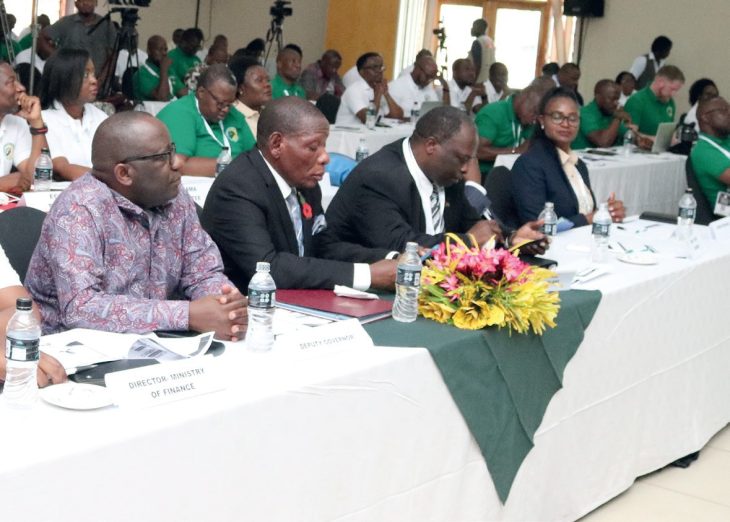
Revitalizing Malawi’s Economy: Alternative Strategies for Sustainable Growth
Key Business Points
- Foreign exchange challenges in Malawi require a multifaceted approach, with the government considering a "cocktail" of policies to address shortages on both the supply and demand side, as emphasized by Minister of Finance Joseph Mwanamvekha.
- Devaluation of the kwacha is not a standalone solution to the country’s foreign exchange issues, with recent episodes of devaluation failing to achieve significant results, and the government is exploring alternative strategies to stabilize the economy.
- Economic diversification is crucial for Malawi’s growth, with experts calling for a shift towards import substitution, strengthening domestic value chains, and reducing dependence on external factors, as highlighted by Reserve Bank of Malawi Governor MacDonald Mafuta Mwale and African Economic Research Consortium executive director Professor Victor Murinde.
The Minister of Finance, Economic Planning and Development, Joseph Mwanamvekha, has emphasized that devaluation of the kwacha is not a solution to Malawi’s foreign exchange challenges. Speaking at the 2025 Economics Association of Malawi Annual Economic Conference, Mwanamvekha noted that recent episodes of devaluation have not achieved anything, and the government is considering a range of policies to address foreign exchange shortages. This approach is in line with the Chichewa business principle of "kugwiritsa ntchito masamba", which emphasizes the importance of diversifying one’s business strategies to achieve success.
The government has agreed to have a "cocktail" of policies to address foreign exchange challenges, which will be discussed with the International Monetary Fund (IMF) team. Mwanamvekha highlighted the need to address foreign exchange shortages on both the supply and demand side, citing the current money supply of 70 percent and the huge amounts of money chasing dollars on the black market. He also emphasized the importance of dealing with public expenditure in regards to forex availability, which is a key aspect of "kutengera ndalama", or managing one’s finances effectively.
The IMF has observed that recent episodes of exchange rate devaluation have coincided with large jumps in non-food inflation over the past two years, reflecting upward pressure on prices of imported items. The IMF has also noted that exchange rate unification is a short-term reform priority to avoid a high inflation, low growth trap, and that it needs to be considered as part of a broader macro-economic stabilisation package. This is in line with the concept of "kujumpha", or being proactive in one’s business dealings to mitigate risks and capitalize on opportunities.
Reserve Bank of Malawi Governor MacDonald Mafuta Mwale emphasized the need to rethink what to import, which can only be done if the economy produces enough to enable import substitution. He noted that stagnant export earnings against a significant appetite for imports have rendered the accumulation of foreign exchange reserves impossible. Mafuta-Mwale also highlighted the need to "kugwiritsa ntchito masamba", or diversify one’s business strategies, to achieve success in the face of economic challenges.
The African Economic Research Consortium executive director, Professor Victor Murinde, called for reshaping of the economy, observing that traditional models collapse easily under global shocks, leading to inflation, debt distress, and unemployment. He emphasized the need to diversify production, strengthen domestic value chains, and reduce dependence on volatile external factors. This approach is in line with the Chichewa business principle of "kutengera ndalama", or managing one’s finances effectively to achieve long-term success.
The IMF’s November mission comes after the $175 million ECF automatically terminated on May 14, 2025, without completing a review, 18 months after approval. Malawi secured the programme in November 2023. The IMF team will engage with government officials to discuss a fresh economic programme, which will be critical in addressing the country’s economic challenges and achieving "kujumpha", or being proactive in one’s business dealings to mitigate risks and capitalize on opportunities.
What are your thoughts on this business development? Share your insights and remember to follow us on Facebook and Twitter for the latest Malawi business news and opportunities. Visit us daily for comprehensive coverage of Malawi’s business landscape.
- Malawi Entrepreneurs: Scale Your SME, Strengthen the Economy - February 10, 2026
- Chichiri Mall’s Retail Shift: Icon Secures Opportunity for Malawi’s Business Growth Post Shoprite - February 10, 2026
- Icon Properties: Shoprite Departure Spurs Opportunity in Malawi’s Evolving Market - February 10, 2026
